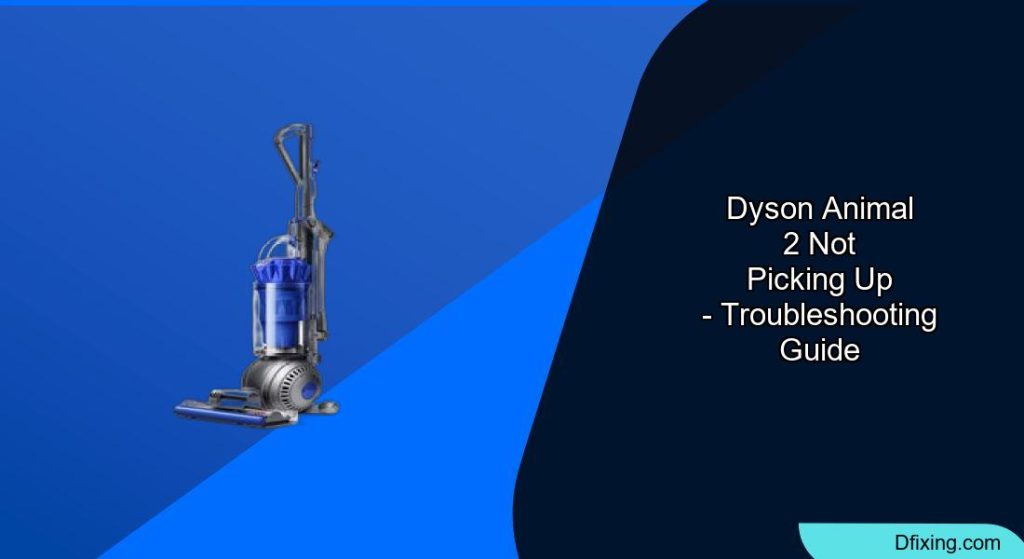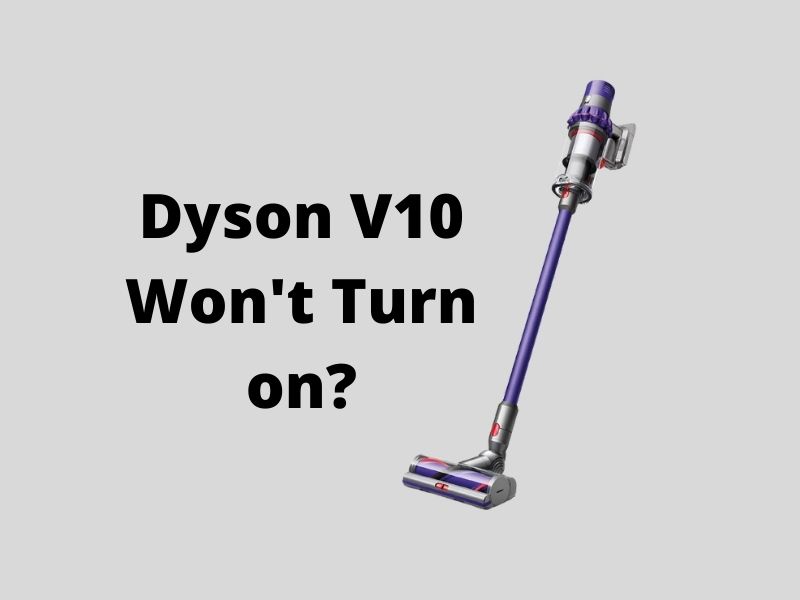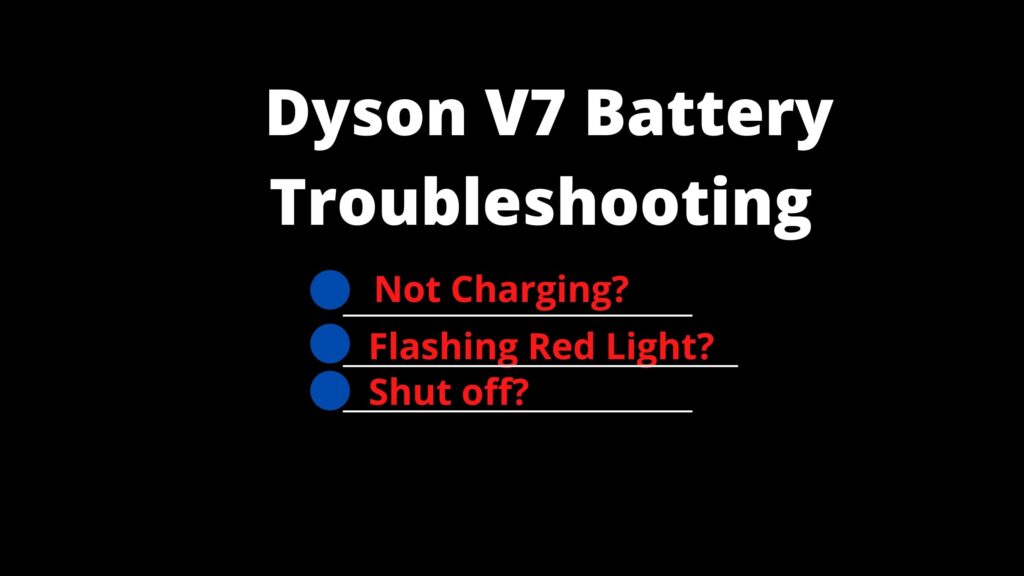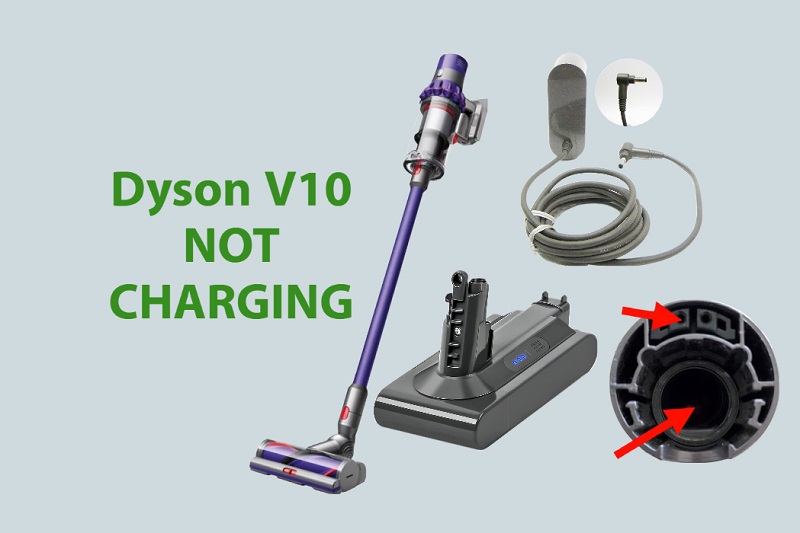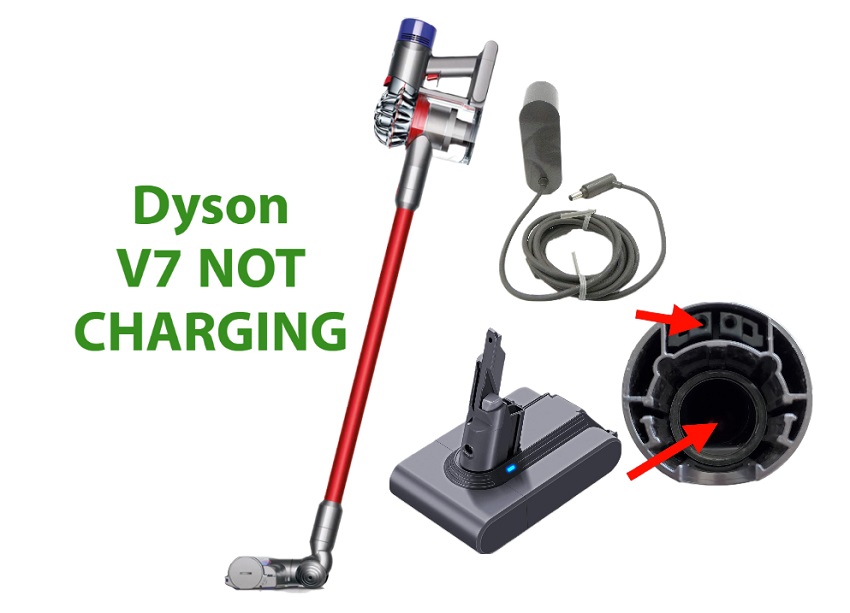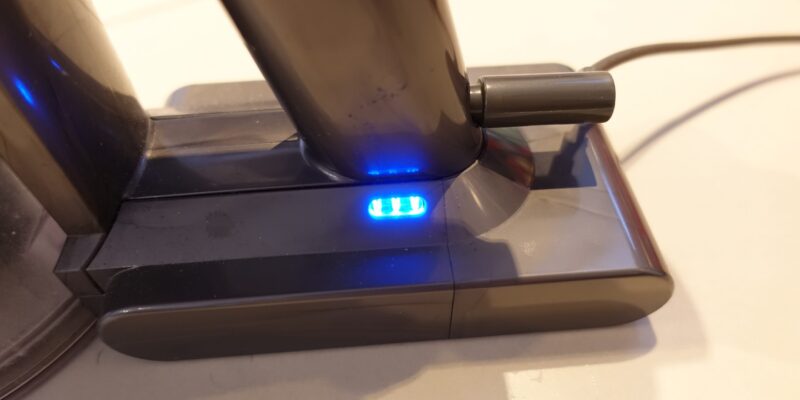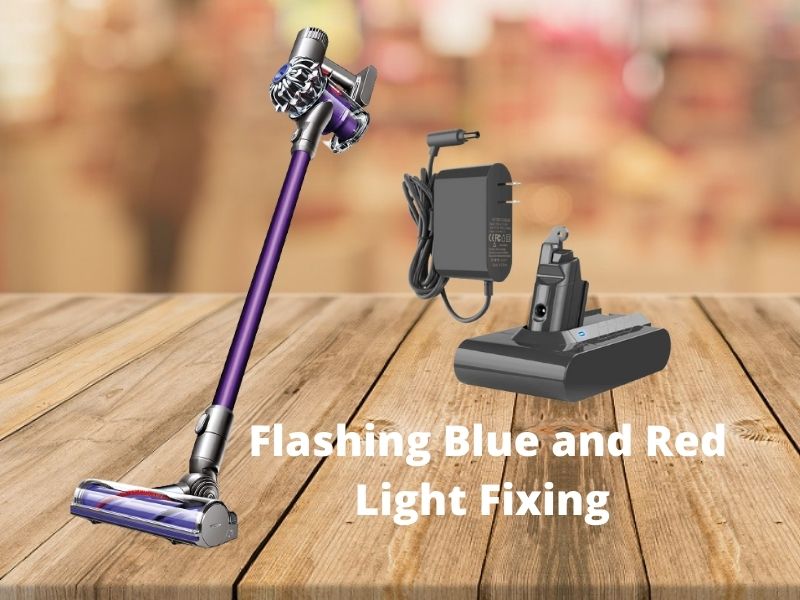The Dyson Ball Animal 2 is renowned for its exceptional suction power, making it a favorite among pet owners. However, when this powerful vacuum suddenly stops picking up debris, it can be frustrating and concerning. Suction issues can stem from various causes, from simple blockages to more complex mechanical problems. In this comprehensive guide, we’ll explore the common reasons your Dyson Animal 2 might not be picking up properly and provide detailed troubleshooting steps to restore its optimal performance.
Affiliate disclosure: As an Amazon associate, We'll earn a commission for every successful order through our affiliate links in the article. However, you won’t be charged anything for this.
Whether you’re dealing with a complete loss of suction or just noticing reduced cleaning power, this article will walk you through systematic diagnosis and practical solutions. By following these expert recommendations, you can potentially save on repair costs and extend the life of your premium vacuum cleaner.
Common Causes of Suction Loss in Dyson Animal 2
When your Dyson Animal 2 stops picking up debris effectively, several factors could be responsible. Identifying the root cause is essential for implementing the correct solution.
Clogged Filters
The pre-motor and post-motor filters in your Dyson Animal 2 play a crucial role in maintaining proper airflow. When these filters become clogged with dust and debris, they restrict airflow, resulting in reduced suction power.
Blocked Airflow Pathways
Your vacuum’s suction depends on unobstructed airflow through the entire system. Blockages can occur in various components:
– The main hose
– The wand
– The brush bar area
– The cyclone assembly
– The change valve mechanism
Dust Bin Issues
An overfilled dust bin or debris stuck in the bin’s seals can significantly impact your vacuum’s performance. Even if the bin isn’t completely full, accumulated dirt around the cyclone entrance can restrict airflow.
Brush Roll Problems
Hair and string wrapped around the brush roll can prevent it from rotating properly, reducing the vacuum’s ability to agitate and pick up debris from carpets.
Mechanical Failures
Sometimes the issue goes beyond simple clogs. Damaged hoses, broken internal components, or problems with the motor can all lead to suction loss.
Step-by-Step Troubleshooting Guide
Cleaning the Filters
Dirty filters are one of the most common causes of suction problems in Dyson vacuums. Follow these steps to properly clean your filters:
Locate and remove the filters:
- The canister filter can be accessed via a front tab
The main filter is located at the ball assembly
Clean the canister filter:
- Remove the filter
- Rinse under cold water until the water runs clear
- Do not use detergents or wash in a dishwasher
- Allow to dry completely for 24 hours before reinstalling
Clean the main filter:
- Unscrew the filter counter-clockwise
- Rinse under cold water (avoid squeezing)
- Allow to dry for 24 hours
- Reattach by screwing clockwise until you hear a click
- Remember that damp filters can damage the motor and reduce suction power, so ensure they’re completely dry before reinstallation.
If your Dyson Animal 2 filters are damaged, worn out, or impossible to clean, it’s time to replace them.

Premium HEPA filters with washable pre-filters for optimal suction and longevity.

Cost-effective H12 filters with improved suction and easy maintenance.

High-strength materials with advanced filtration for a healthier home.

Premium kit with tools for easy maintenance and long-term performance.
Clearing Blockages in the Airflow Path
Checking the Hose
- Detach the hose from both ends
- Visually inspect for blockages
- Use a broom handle or similar long object to gently push through any obstructions
- Check for holes or cracks in the hose that might cause suction loss
If you find that your Dyson Animal 2 hose is cracked, damaged, or irreparably blocked, replacing it is the best solution.
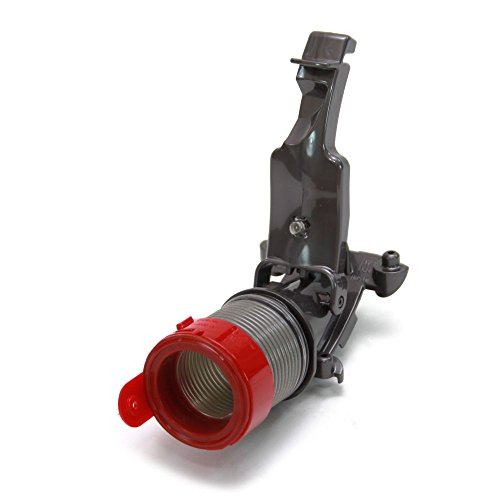
Official replacement for DC41/UP20 Animal 2

Popular replacement for multiple Dyson models

OEM part for UP20 with Bissell compatibility
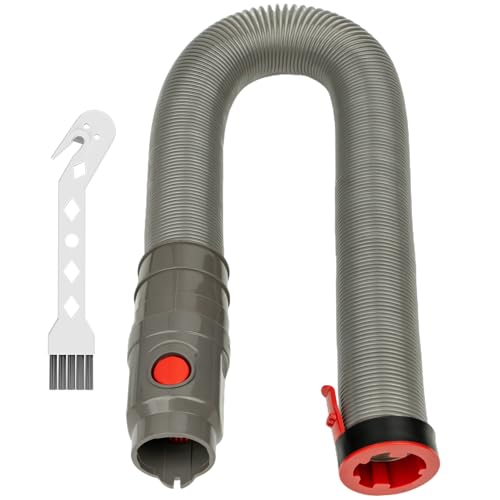
Stretchable hose for extended reach
Inspecting the Wand
- Remove the wand from the hose and floor head
- Look through it to check for blockages
- Use a long, thin object to push out any debris
If the wand of your Dyson Animal 2 is damaged or has a crack, you may need to replace it.
Examining the Suction Chamber
- Disconnect the vacuum at the gold prongs on the base
- Remove the red clip by gripping both sides and pulling it off
- Undo the hook on the chamber and pull it out
- Clear any debris using gloves and disinfectant wipes
- Reassemble the chamber, ensuring the red clip and hook are secure
Checking the Change Valve
The change valve directs suction between the floor head and hose attachments:
- Locate the change valve in a hose connected to the secondary filter
- Remove the secondary filter by unscrewing it
- Clear any obstructions that might prevent the valve from moving freely
- Ensure the valve moves smoothly between suction modes
Maintaining the Brush Roll Area
Remove the brush roll:
- Press the release button
Pull the brush roll out
Clean tangled hair and debris:
- Use scissors to cut away wrapped hair
Remove string, threads, and other debris
Deep clean the brush roll:
- Wash with warm water and mild dish soap
- Use a soft-bristled brush to scrub thoroughly
- Allow to dry completely before reinstalling
Access the brush housing interior:
- Flip the tabs on the brush housing (left to right or vice versa)
- Remove accumulated hair and debris
- Wipe the area with disinfectant
Reinstall properly:
- Align the three tabs/slots
- Secure the brush roll clip
- Ensure the outlet aligns with the vacuum’s inlet
Addressing Dust Bin Issues
Empty and clean the dust bin:
- Empty contents into a trash bag
- Rinse with warm water and mild soap
- Dry completely before reattaching
Clean the cyclone assembly:
- Wipe cyclone seals with a damp cloth
- Remove debris from the mesh grate
- Reassemble by aligning the cyclone button with its hole
Check bin seals:
- Inspect for damage or wear
- Clean any debris that might prevent a proper seal
- Ensure the bin clicks securely into place when reattached
Solving Specific Dyson Animal 2 Suction Problems
When Suction Only Comes from the Hose
If your vacuum only has suction from the hose and not the floor head, try these solutions:
Check the change valve for blockages:
- Look for foreign objects like socks or toys
Remove any items blocking the valve
Inspect the internal hose connection:
- Lay the machine on its front
- Remove the cleaner head
- Verify the internal hose is securely connected
Verify the change over valve/hatch:
- Remove the bin
- Check that the hatch is present and properly closed
When Suction is Lost in Carpet Mode
Reset the brush bar:
- Turn the vacuum off
- Unplug for a few minutes
- Hold the power button for 10 seconds
- Plug back in and test
Check the power connection:
- Detach the cleaner head
- Inspect electrical contacts for dirt or misalignment
- Firmly reattach to ensure proper connection
Test the setting switch:
- Press the carpet mode button
- Listen for clicking or vibration
- If unresponsive, the selector mechanism may be faulty
Examine internal components:
- If no power reaches the motorhead despite secure connections
- The wiring harness or PCB inside the vacuum body may be faulty
- This may require professional repair
When the Vacuum Overheats and Shuts Off
The Dyson Ball Animal 2 has a thermal breaker that shuts off the motor if it overheats. If this happens:
Allow the vacuum to cool down for at least 30 minutes
Check for airflow restrictions:
- Clean all filters
- Clear any blockages in hoses and pathways
- Ensure the dust bin is empty and properly attached
Inspect the fan:
- Consult the user manual for accessing the fan
Clear any debris that might be obstructing fan movement
Tighten loose components:
- Ensure all parts, including wheels and attachments, are secure
- Loose parts can create friction and contribute to overheating
When the Vacuum is Difficult to Push on Carpets
If your Dyson Animal 2 creates excessive drag on carpets:
Check the height adjustment (if available)
Consider these modifications (note that these may void warranty):
- Install O-rings on the front two tabs of the sole plate
Carefully trim the rubber seal on the brush bar plate edges
Evaluate your carpet type:
The Animal 2 may not be ideal for carpets with thick padding
- Consider a different vacuum model for such surfaces
Frequently Asked Questions (FAQ)
Why does my Dyson Animal 2 have good suction through the hose but not the floor head?
This typically indicates a blockage in the path between the hose and floor head or an issue with the change valve mechanism. Check for obstructions in the internal hose connection and ensure the change valve moves freely. Also verify that the cleaner head is properly attached and the brush roll is clean and rotating freely.
How often should I clean the filters on my Dyson Animal 2?
Dyson recommends washing the filters at least once a month. However, if you have pets or vacuum frequently, you may need to clean them more often. Watch for signs of reduced suction, which often indicate it’s time to clean the filters.
Why does my Dyson Animal 2 keep cutting out during use?
If your vacuum repeatedly shuts off during operation, it’s likely activating its thermal protection system due to overheating. This can be caused by blockages, dirty filters, or an overfilled dust bin. Clear any obstructions, clean the filters, and empty the bin. If the problem persists, there may be an issue with the motor or thermal switch requiring professional repair.
Can I wash all parts of my Dyson Animal 2 with water?
No. While the dust bin and some attachments can be washed with water, electrical components should never be exposed to moisture. The filters can be rinsed with cold water only (no soap), but must dry completely for 24 hours before reinstallation. Always consult your user manual before washing any components.
My Dyson Animal 2 smells bad when running. What causes this?
Unpleasant odors usually come from debris trapped in the dust bin, filters, or brush roll. Empty and thoroughly clean the dust bin, wash the filters, and check the brush roll for trapped hair or debris. For persistent odors, use 91% isopropyl alcohol or Lysol disinfectant wipes to clean non-electrical components.
Conclusion
The Dyson Animal 2 is a powerful vacuum designed to handle tough cleaning jobs, especially in homes with pets. When suction problems occur, they can often be resolved through systematic troubleshooting and regular maintenance. By following the comprehensive steps outlined in this guide, you can restore your vacuum’s performance and extend its lifespan.
Remember that proper maintenance is key to preventing future issues. Regularly empty the dust bin, clean the filters monthly, check for blockages, and keep the brush roll free of hair and debris. With proper care, your Dyson Animal 2 should provide reliable service and powerful suction for years to come.
If you’ve tried all these troubleshooting steps and your vacuum still isn’t picking up properly, it might be time to contact Dyson customer service or a certified repair technician. Some internal components may require professional attention to diagnose and repair.

